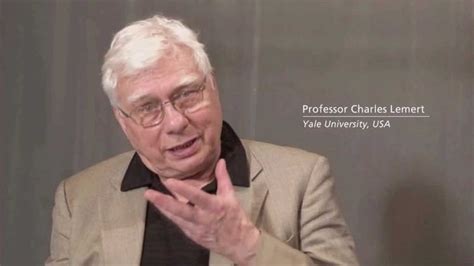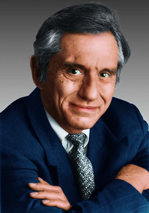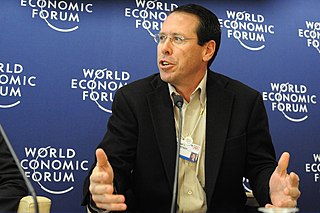A Quote by Charles Lemert
Succinct, thorough, and masterfully researched-Thomas Medvetz has written a subtle and timely history of these fixtures of public debate in the United States. In the realms of culture studies, policy, and policy formation, there is no book quite like Think Tanks in America. Plus which, no one has understood, interpreted, then used Pierre Bourdieu's ideas better-so well that Bourdieu himself would have been pleased.
Related Quotes
We know what our policy is regarding the territory of Israel, Kosovo, Bosnia, Macedonia and even Nagorno-Karabakh. What is our policy regarding the territory of the United States? No nation in history has ever been as willing to accommodate those who would dismember it as has the United States of America. Trying to get a straight pro-U. S. comment out of a U.S. elected official is like trying to nail a custard pie to the side of a barn.
Democracy, in the United States rhetoric refers to a system of governance in which elite elements based in the business community control the state by virtue of their dominance of the private society, while the population observes quietly. So understood, democracy is a system of elite decision and public ratification, as in the United States itself. Correspondingly, popular involvement in the formation of public policy is considered a serious threat. It is not a step towards democracy; rather it constitutes a 'crisis of democracy' that must be overcome.
What's going to be hard for the United States is that our policy for a long time has been a two-state solution; the Palestinians should have their own state. Now, the Palestinians are going to the U.N. and saying, 'We're having the U.N. vote to say we have our own state. Well, if that's your policy, United States of America, why are you vetoing it?' Which we will do.
I certainly want people to read what I've written. Yet, and here's that question of economic position, because I have a secure job, I don't need a wide readership to survive. I'm a participant in the indirect economy, what sociological critic Pierre Bourdieu would call the "economic world reversed." I get "paid" by writing whatever I choose. That's a pretty good position to be in, but I don't pretend for a moment that it is not a privileged one.
I have looked at public opinion polls in France in the late 1940s and early 1950s during the height of Marshall Plan aid. They had a very negative attitude towards the United States then. There were negative attitudes towards the United States because of Vietnam. There were negative attitudes about the United States when Reagan wanted to deploy intermediate range ballistic missiles. I don't think the president should base his foreign policy on American public opinion polls, let alone foreign public opinion polls.



































